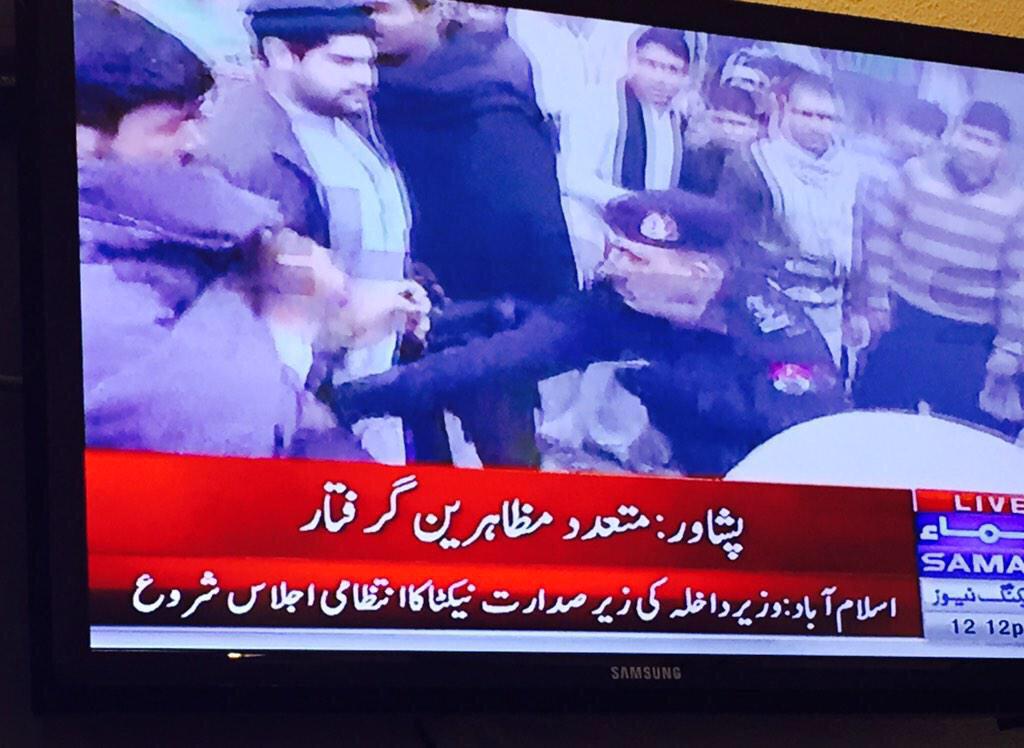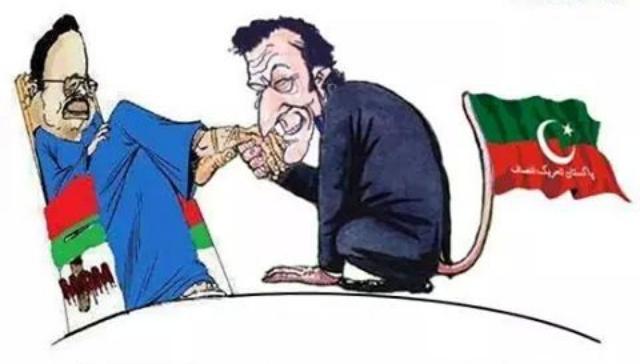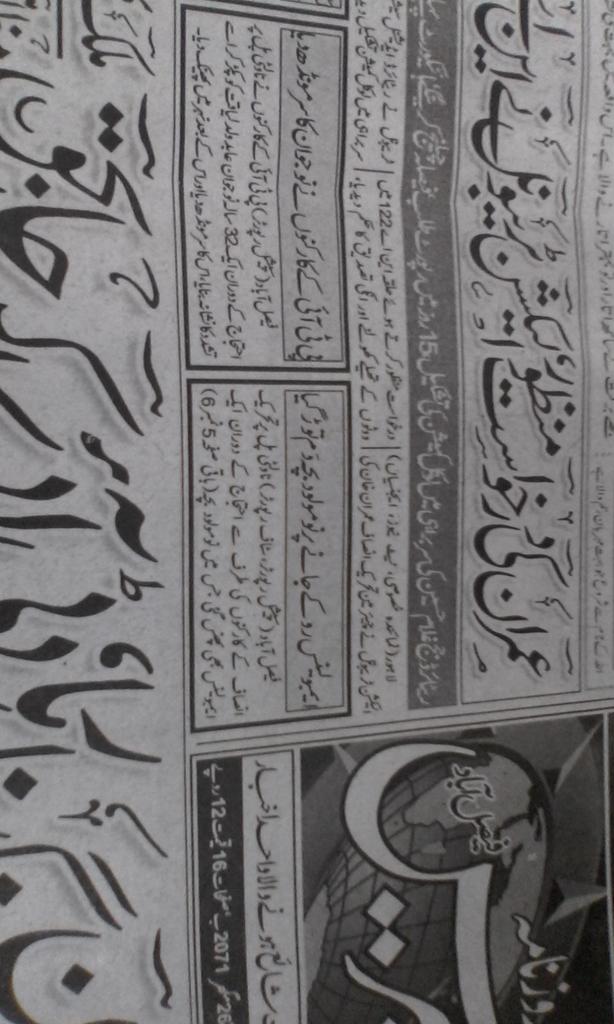The dumping of bodies in different areas of Khyber
Pakhtunkhwa and adjoining tribal areas has become a recurring phenomenon
with the investigation officers groping in the dark. The recovery of
six unidentified bullet-riddled bodies on Saturday in Nizampur area of
Nowshera district is the latest addition in such occurrences. The
officials at Nizampur police station said that they had been
investigating the matter, but could not trace identity of the six
persons.
The deceased were stated to be between 25 to 35 years of
age and five of them were sporting beards. The bodies were in bad shape
and carrying marks of multiple bullet shots. The officials said that
they were not sure who were behind the killings and what was their
motive.
Last month, five bodies stuffed in gunnysacks were
recovered in Bara Banda area in Risalpur police station limits in
Nowshera. Four of the deceased were identified as Asghar Ali, Noor
Rehman, Irshad Ali and Mushtaq Ali. They had gone missing a few months
before their deaths and FIRs were registered against their
disappearances in their respective police stations.
An official
at the Risalpur police station told this reporter that the case had now
been investigated by the Counter Terrorism Department (CTD) and the
local police, but so far there was no progress. He said that they were
not sure who had taken away these persons and for what reason.
A
few days ago the Peshawar High Court disposed of a habeas corpus
petition regarding “enforced disappearance” of a person whose body was
later found stuffed in a gunnysack in Jamrud tehsil of Khyber Agency on
Nov 21, 2013. The petitioner, Asadullah Khan, brother of the deceased
Roohullah, did not want to pursue the case as his counsel claimed that
he was under pressure from the police. The petitioner had alleged that
his brother was taken away by sleuths of an intelligence agency from
outside the Peshawar Central Prison soon after his release on the orders
of a local anti-terrorism court.
Last year, during pendency of
this petition the high court had directed the federal secretaries of
defence and interior ministries to inform the bench concerning the
whereabouts of Mr Roohullah. However, the elements involved in his
disappearance dumped his body conveying a message that they had less
regard for the court orders.
According to police record, Mr
Roohullah was a ‘would-be suicide bomber’ and initially arrested on May
24, 2013 along with his mother, three brothers and another person by the
officials of Chamkani police station from their residence at Tarnab
Farm area. Police alleged that during the raid they had recovered
explosives. An anti-terrorism court acquitted all the six suspects in
Aug 2013.
While the other five persons were released, Mr
Roohullah was charged in another case and kept imprisoned. He was
granted bail in that case and when he came out of prison on Sept 6,
2013, he was allegedly taken away by unidentified persons while his
family members witnessed the occurrence.
In Aug 2012, then PHC
chief justice Dost Mohammad Khan had taken suo motu notice of the issue
following reports that 26 bodies were dumped in different areas.
Subsequently, several other bodies were found dumped in different areas
and it transpired that several of the deceased were “missing persons”.
One
thing common in most of those mysterious deaths was that these persons
were mostly taken away by law enforcing agencies and had remained
missing for many months and some for years. They had died in very
miserable conditions as several of them were starved to death. Their
bodies were also carrying marks of torture.
The court had in one
of the hearings ruled that the dumping of bodies in parts of Khyber
Pakhtunkhwa and tribal areas amounted to extrajudicial killings and the
government should pay compensation to legal heirs of deceased persons.
The
court had also directed constitution of a joint investigation team of
competent officers for ascertaining the facts behind those killings.
Last year, the police had submitted a confidential report to the court
wherein it had suspected the involvement of intelligence agencies behind
such killings.
That case could not be pursued further in the
high court as the Supreme Court had in 2013 placed restrictions on the
suo motu powers exercised by a high court’s chief justice.
From
time to time international and national human rights bodies, including
the Amnesty International, Human Rights Watch and Human Rights
Commission of Pakistan, have been highlighting the issue of custodial
killings and other abuses mostly originating because of conflicts in
different areas. However, the concerned quarters, including intelligence
agencies, always remained in state of denial and never accepted that
such things happened in the country.
A lawyer dealing with the
missing persons’ cases believe that the cases of dumping of bodies could
not be resolved by the police as they mostly suspected involvement of
intelligence agencies in it and the local police were scared of them.
He added that one thing was clear that this phenomenon was far from
over and would continue to persist unless conflicts in different regions
come to an end.
Published in Dawn, December 15th, 2014












